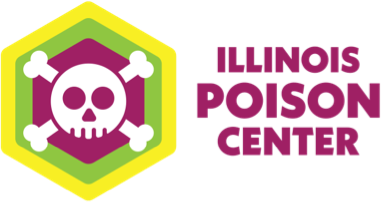Carbon Monoxide
You can’t see, taste or smell carbon monoxide (CO). That’s why it’s important to protect yourself and your family from exposure to this poisonous gas. CO is released into the air when fuels including wood, oil and gasoline are not burned completely.
Common Sources of CO
Oil, wood or gas furnaces
Gas stoves or dryers
Gas space heaters
Gas or oil water heaters
Gasoline-powered vehicles and tools such as cars, boats, jet skis, snowmobiles, lawn mowers, snow blowers, chain saws, weed trimmers and power washers
Charcoal grills
Gas lanterns
Gas, propane or oil powered generators
It’s normal for gas-powered appliances to emit CO during regular use. Exposure to CO can occur when there’s a leak from the vent that carries CO out of the home. A fuel-based appliance or a piece of equipment that malfunctions or is poorly ventilated can also lead to CO exposure.
Early Symptoms of CO Poisoning
Headache
Nausea
Vomiting
Dizziness
More Significant Poisoning Symptoms
Throbbing headache
Drowsiness
Confusion
Heart irregularities
Severe Poisonings Symptoms
Convulsions
Unconsciousness
Brain damage
Death
CO poisoning usually occurs slowly over a period of several hours. Yet at very high concentrations, CO can kill in minutes.
What to Do
If you think someone may have been exposed to carbon monoxide, fresh air is the most important treatment. Open the windows wide and help the person outside. Once you are out of immediate danger, call IPC at 1-800-222-1222 for treatment advice.
Prevention Tips
CO detectors are essential to protecting yourself and your family from being exposed to dangerous levels of the gas. CO detectors are like smoke detectors: They warn you before CO concentrations reach dangerous levels. Every home in Illinois is required by law to have a CO detector within 15 feet of every room used for sleeping.
Check or change the batteries in your CO detector every six months. If you don’t have a battery-powered or battery backup CO detector in your home, buy one as soon as possible.
Have your heating system, water heater and any other gas, oil or coal-burning appliances checked and serviced by a qualified technician every year.
Keep vents and flues free of debris. Debris can block ventilation from the home.
Never leave the motor running in a vehicle or tool in an enclosed or partially enclosed space, such as a garage.
Never run a motor vehicle, generator, pressure washer or any gasoline-powered engine close to an open window, door or vent where exhaust can vent into an enclosed area (less than 20 feet).
Never use a charcoal grill, hibachi, lantern or portable camping stove inside a home, tent or camper.
Never run a generator, pressure washer or any gasoline-powered engine inside a basement, garage or other enclosed structure, even if the doors or windows are open.
IPC is here to help. Call IPC at 1-800-222-1222 for treatment advice on a potential exposure to carbon monoxide. Calls are free and confidential. IPC toxicology experts are available to answer your questions 24 hours a day, seven days a week.
